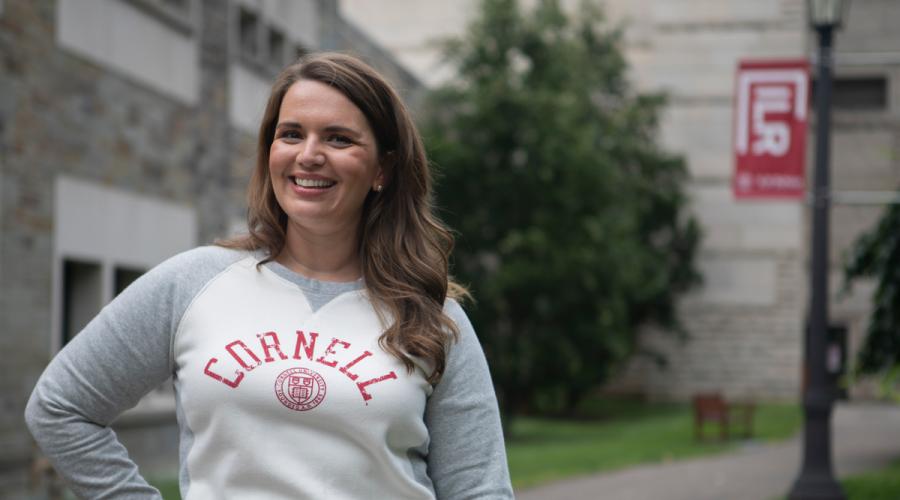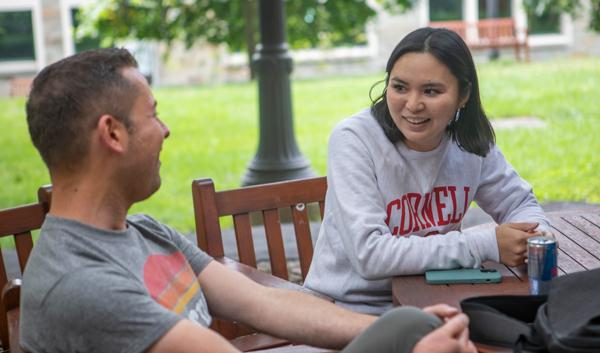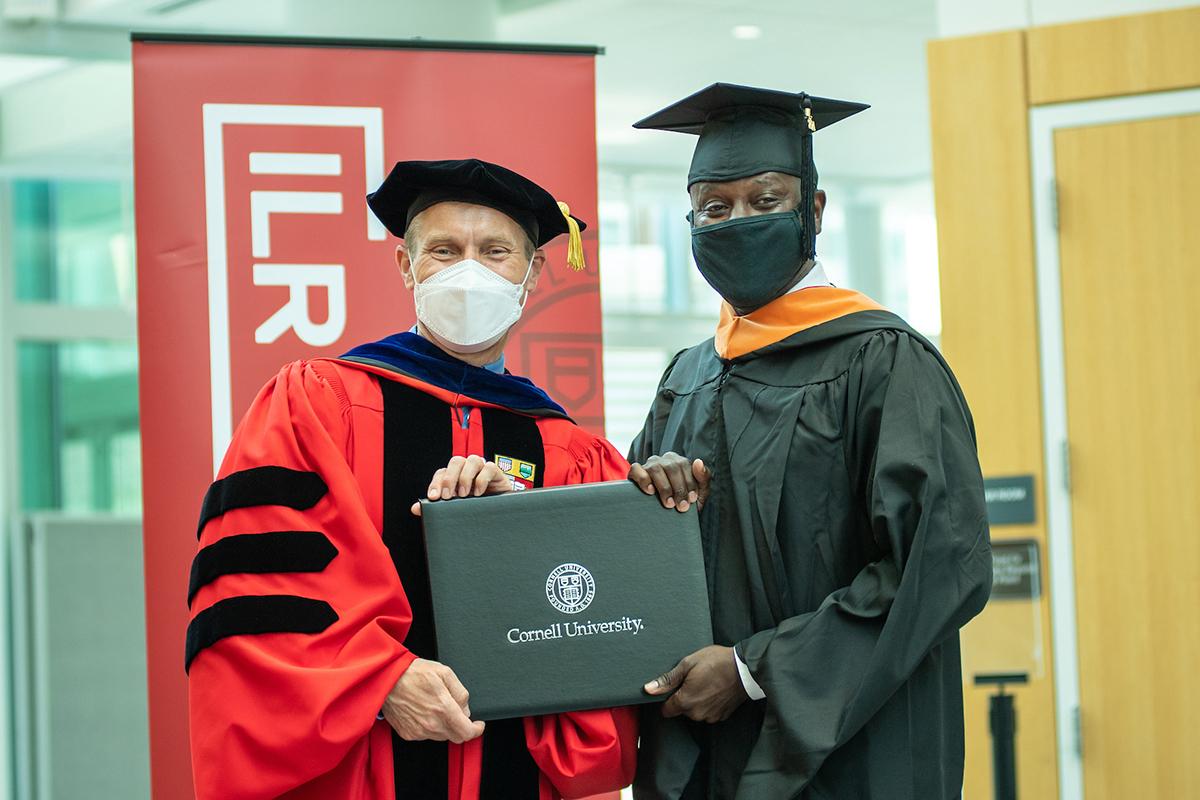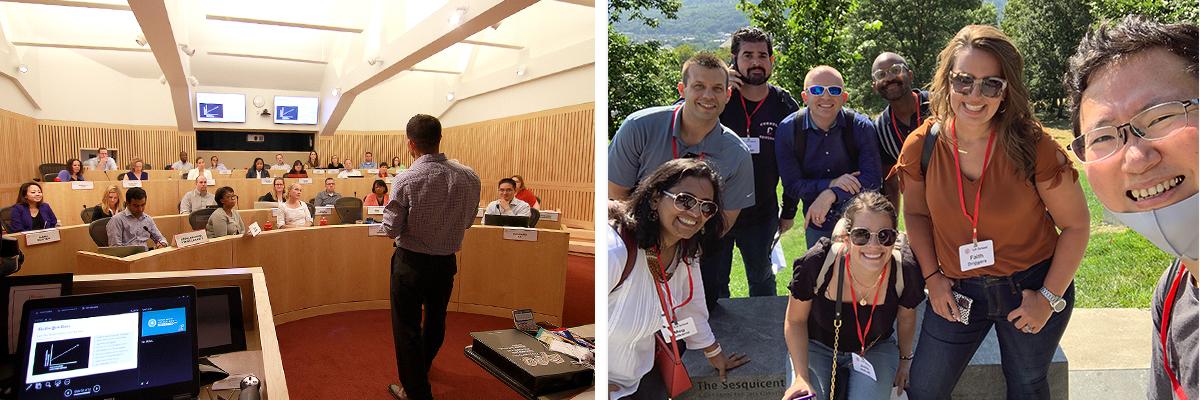
HR Executive Master’s Program Builds Lifetime of Support
Now in its seventh year, Cornell’s first-ever hybrid degree program, the ILR School’s Executive Master of Human Resource Management (EMHRM), has become what one graduate calls “the experience of a lifetime.”
“Hybrid is all the rage these days, and EMHRM is hybrid in powerful ways,” said Susan Beauregard, executive director of the program. “It has synchronous and asynchronous learning modules to fit working people’s schedules, distance and in-person learning to build lifelong networks, and academic and practitioner access to link cutting-edge HR research to the world of work.”

The program, which begins each May and spans 15 months, has graduated nearly 200 students. It combines online learning, presented in two-week modules, with weeklong on-campus residencies held in August, March and July. EMHRM is targeted to mid-career HR professionals looking to take their careers to the next level – most have 10-20 years’ experience.
LeAnn Smith, EMHRM ’16, was North America talent strategy lead for Accenture when she joined the inaugural 2015-16 cohort. “The program opened my eyes to the full scope and evolution of the HR function,” she said, noting that she valued “the access to educators and thought leaders, relationships built with others in the industry, and knowledge sharing across an amazingly talented cohort of individuals from diverse backgrounds, industries and corporations.” Today, she is senior vice president for talent management and development at McKesson.
Throughout the program, students apply the concepts and tools they learn to real-time, strategic issues at their organizations via a capstone case project. “The courses are timed to align with project deliverables, starting with business strategy (‘the why’) and continuing with HR strategic tools (‘the what’) and HR in action (‘the how of change’),” Beauregard said.
“Students come away from the program not only with deeper understanding but also having completed a project that impacts the company they work for,” said former director Chris Collins, associate professor of human resource studies.
The online courses, offered through eCornell and taught by faculty such as Assistant Professor Brian Lucas, are developed by Cornell’s world-renowned faculty. On-campus sessions are taught by Cornell faculty along with top HR executives, giving students a blend of academic and practitioner perspectives.

“Together, they provide broad-based knowledge and a skill set that allows students to approach HR from a much more strategic standpoint,” said founding director Brad Bell, the William J. Conaty Professor of Strategic Human Resources and director of the Center for Advanced Human Resource Studies (CAHRS).
“The program expanded my understanding of the role of HR and the ways in which diversity, equity and inclusion impact and are impacted by other functions within the discipline,” said Michael Munoz, EMHRM ’17. “It elevated my confidence as a career-long diversity and inclusion practitioner to engage in meaningful dialogue across other HR functions.” When Munoz enrolled in the program, he was the senior lead diversity business consultant at Aetna. Today, he is diversity, equity and inclusion lead for global marketing at Google.
During the program’s on-campus residencies, students form lasting relationships that sustain them throughout their careers. “The dynamic, in-person learning that takes place and students’ engagement with each other and the faculty are incredible,” Beauregard said.
Each year’s cohort has 30 to 40 members. “In constructing a cohort, we look for students who can learn from one another, who have similar levels of experience and expertise in HR but who come from diverse industries and geographies,” Bell said. “Along with the prototypical student – somebody working in corporate HR – we’ve had people from higher education and nonprofits. We’ve had current and former military.” Industries represented include financial services, pharmaceuticals, technology and entertainment. “The great diversity leads to great learning,” Collins said.

Smith and Munoz remain close with members of their cohort. “We’re linked together and are often each other’s biggest supporters as we navigate life and career challenges and opportunities,” Munoz said. “The shared experience we had forms bonds that last a lifetime.”
Within a year of completing the program, many students receive promotions or change employers. “Their approach to HR, the way they perceive their role, their ability to articulate the business case for proposed HR changes and to have difficult conversations with and coach senior line leaders – all of that prepares them for more senior roles,” Collins said.
Upon graduating this summer, Quincy Amekuedi, EMHRM ’21, recruiting manager for Facebook’s Employee Referrals Program, said, “I feel the opportunities available to me are endless.”